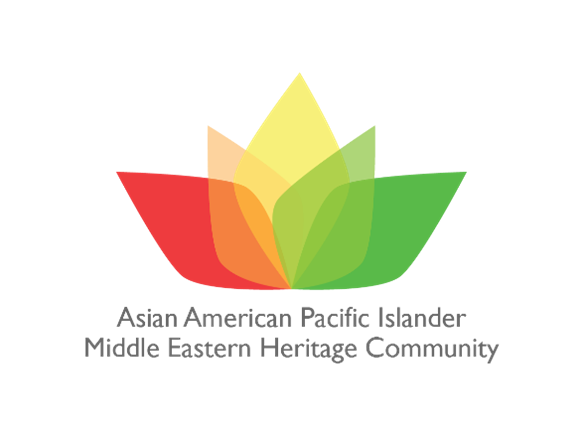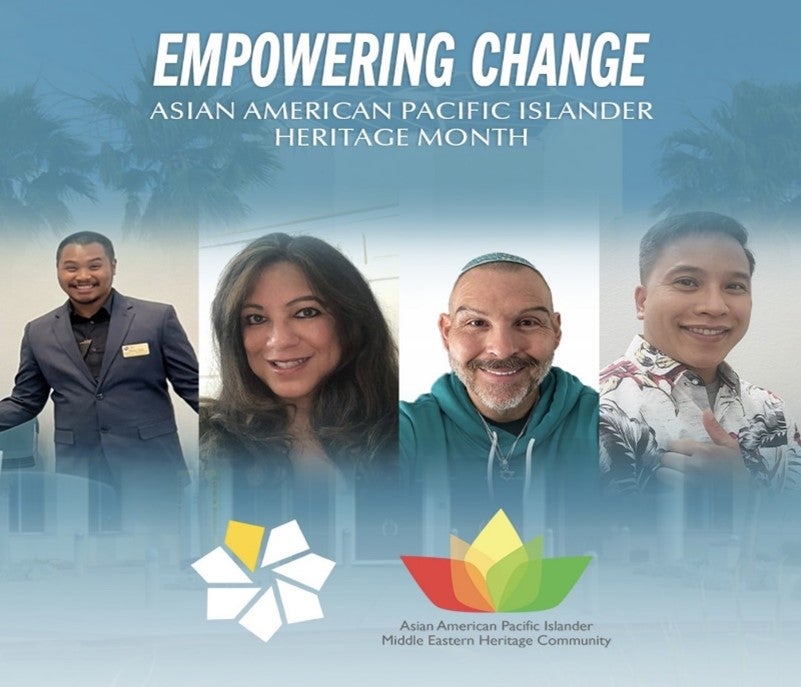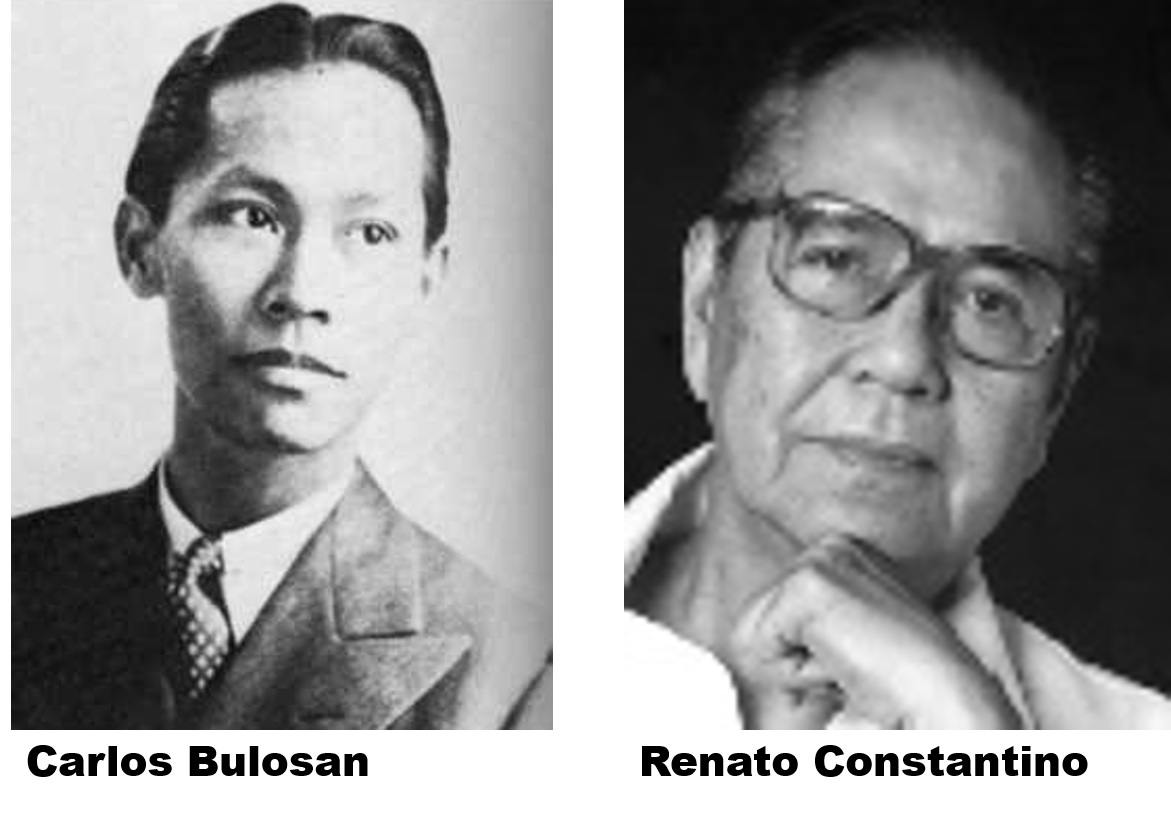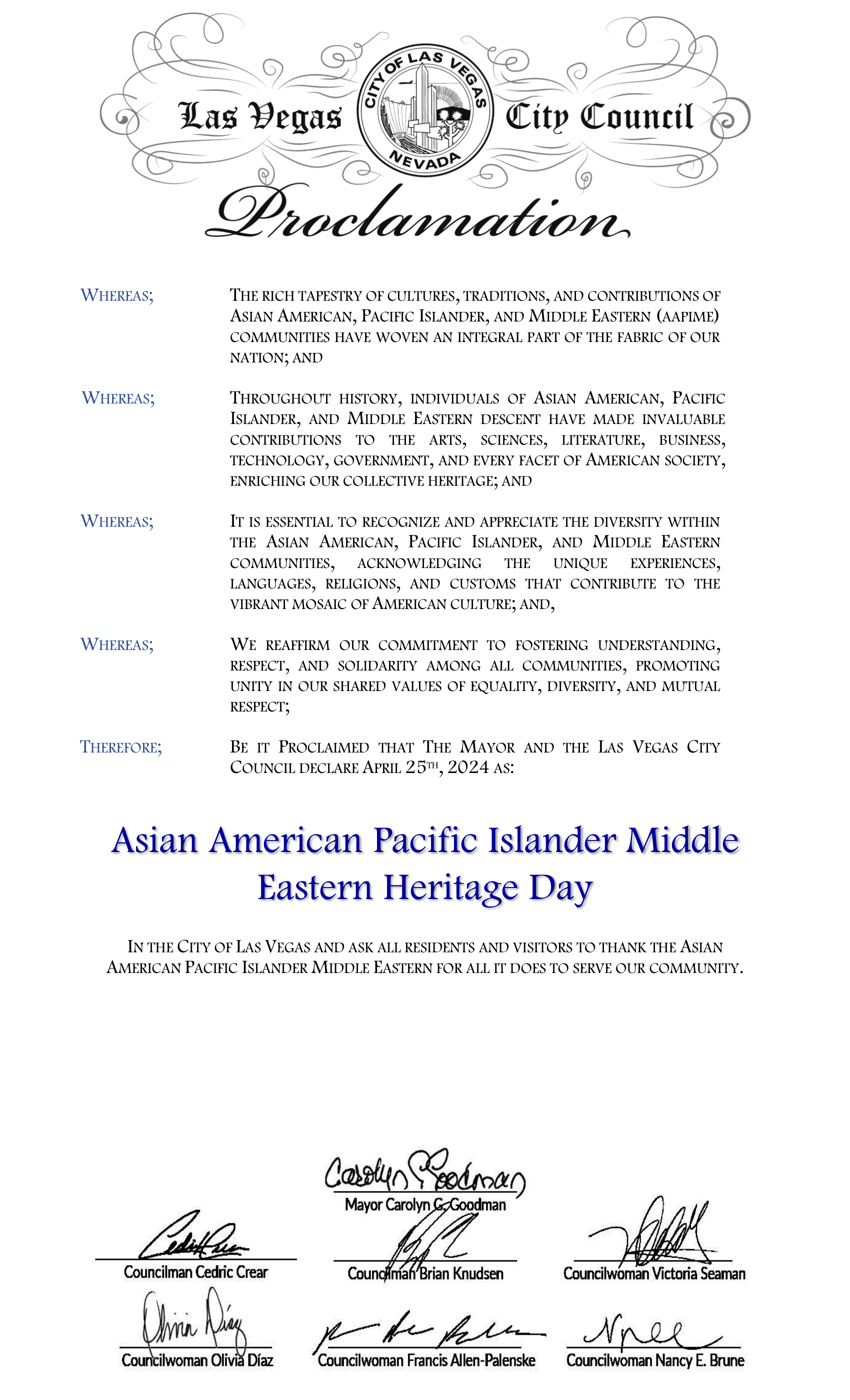Asian American Pacific Islander Middle Eastern Heritage Community
The Asian American Pacific Islander (AAPIME) Heritage Community in conjunction, with the CSN Office of Inclusive Learning & Engagement, hosts cultural events; provides guidance and support for CSN’s AAPIME community; collaborates with other CSN diversity committees and AAPIME organizations across the Las Vegas Valley; and promotes AAPIME Heritage Community synergy and sustainability through network gatherings.
CSN AAPIME OFFICERS
- Angel Clemens - Chair, 2021-2025
- Roberta Palombo - Co-Chair, 2024-2025
- Jason Green - Treasurer, 2021-2025
- Benjamin Mendoza - Historian/Photographer, 2021-2025
- Bryson Atud- Social Media Platform Manager 2021-2025
Asian/Pacific Islander/Middle Eastern Heritage
The committee definition of (Asian American Pacific Islander Middle Eastern abbreviated as AAPIME) encompasses a diverse group of identities, including people with a heritage in all Pacific islands and all parts of Asia, including South and Southeast Asia. Including but not limited to Russia, United Emirates, Turkey, Pakistan, Afghanistan, Armenia, Cambodia, India, Indonesia, Iran, Israel, Japan, Kuwait, Vietnam, Korea, Saudi Arabia, Syria, Taiwan, Thailand, Yemen, etc. Including but not limited to allies/advocates of AAPI's and embrace the AAPI culture. Asian American refers to a US citizen or resident of Asian birth or descent. Pacific Islander refers to people who were born on an island in the Pacific Ocean or trace their heritage to one. Including to but not limited to, Hawaii, Samoa, Tongan, Guam, and Philippines, Australia, New Zealand, etc.
Upcoming Events
AAPIME Fall Festival- Coming in the future
June 13, 2024 Henderson Campus Student Union 126 - Click here for more information
June 20,2024 Charleston Campus Student Union 126 - Click here for more information
July 11, 2024 North Las Vegas Campus Student Union 126 - Click here for more information
“The most effective means of subjugating a people is to capture their minds . . .
Education therefore, serves as a weapon in wars of colonial conquest.”
-Renato Constantino
Carlos Bulosan was a Filipino-American immigrant journalist, poet, fiction writer, and labor activist in the 1930s-1950s. He was born in Binalonan, Pangasinan, Philippines circa 1913. Along with his work as a poet and labor organizer, his most important work might be his 1946 semi-autobiographical novel, America is in the Heart. This creative memoir is one of the earliest works to present the immigrant experience in working-class United States, but it also gives readers insight into life in the Philippines in the early-Twentieth Century. Its accounts of Bulosan’s boyhood in the Philippines and adulthood in the United States are unflinching in their honest realism, so much so that the book might be considered an historical exposé. Undoubtedly, America is in the Heart is one of the most significant texts of the Filipino-American experience. In addition, it is an American “social classic” vital to a comprehensive understanding of the rise of the working class, labor unions, and Roosevelt’s monumental New Deal.
Just like any other groups, the history of Filipino Americans intertwined with every shape of American history. Mr. Bulosan wrote about America in every color: "America is the nameless foreigner, the homeless refugee, the hungry boy begging for a job, and the Black body dangling from a tree." He understood the history that binds us all. Throughout history, there have been countless examples of different communities joining forces to advance justice, such as Bayard Rustin, who protested the internment of Japanese American; Yuri Kockiyama, who stood by Malcom X and dedicated her life to the Civil Rights Movement; and notably among them, Dr. Carter G. Woodson, the father of Black history.
Until February 7th, 1926, when Dr. Woodson initiated the first celebration of Black History Week, elementary and secondary schools were not teaching Black youths about their history. Twenty-five years earlier, during the Philippine-American War, Dr. Woodson was one among a group of 600 educators that the United States sent to the Philippines to establish a formal educational system. There, he witnessed the white washing of Filipino education. His direct participation in and observation of the U.S. miseducation process in the Philippines informed his understanding of the miseducation of Black communities back home. In 1933, Woodson published The Mis-Education of the Negro. Later, in 1959 and inspired by Woodson’s work, Filipino scholar Renato Constantino published The Miseducation of the Filipino. ("Why Filipino Americans Should Be in Solidarity with Black Lives Matter" FANHS 2020)
--Prepared by Eric Pang (CSN Library) and Dr. Adam Burgess (CSN English)
Councilwoman Victoria Seaman presented the Proclamation to CSN AAPIME officially on April 25th to celebrate AAIME Heritage Community Day every year.
General Resources
- Asian Community Development Council
- Asian American Journalists Association
- National Asian American Pacific Islander Mental Health Association
- Stop AAPI Hate
- Self-Care Tips For Asian Americans Dealing With Racism Amid COVID-19
- AA and NHPI In-Language Resources for Coronavirus
- Asian Pacific American Labor Alliance
Members
Ken Betita
Adam Burgess
Florrie Lynn Carin
Jessica Caseman
Santhana Foster
James Iddings
Marylou Kholmeirer
Pam Lum
Barbara Montero
Glenn Mungcal
Kumiko Noriega
Yongyu "Eric" Pang
Emily Rafael
Maria Elaine Reynolds
Palwasha Salam
Nora Seo
Kevin Raiford
Michael Chisholm
Flora Wang
Roberta Palomo
Diversity, Equality and Inclusion Office
Lawrence Weekly DEI Chief of Staff
Racquel Melson DEI Office Director
Community Members
Michelle Dominguez-Past Chair
Maria Ubaldo Soriano- Past Chair
Congressional Leaders
Representatives
| AAPI Representative | Angelica | Villarta | Congresswoman Suzy Lee |
| AAPI Representative | Divya | Narala | Congressmen Horsford |
| AAPI Representative | Nethmini | Happawana | Senator Jacky Rosen |
| AAPI Representative | De'Liza | Galimidi | Senator Cortez Masto |
| AAPI Representative | Lilly | Spinello | Congresswoman Dina Titus |
| AAPI Representative | Christian | Bato | Former Rep, Continue AAPI Support |
| AAPI Representative | Devaki | Dave | Former Senator Jacky Rosen |
| AAPI Representative | Victoria | Seaman | Councilwoman |
CSN AAPIME Student Union Club
AAPIME Student Club President NLV Campus-Zipporah Nixon
AAPIME Student VP of Henderson Campus-Raina Jones
AAPIME Student VP of Charleston Campus- Florrie Lynn Carin
Advisors
Abraham Gomez
Mimi Linck



